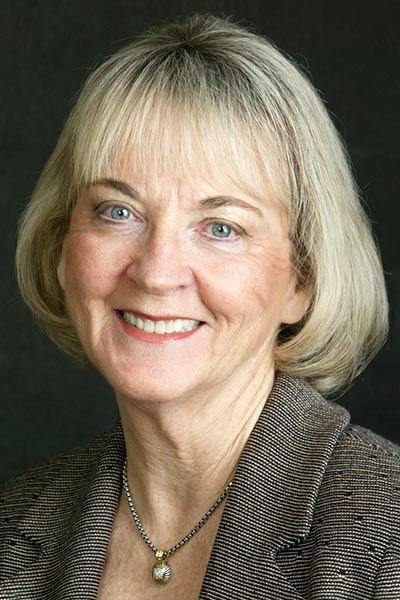Scientist↔Survivor Program celebrates 25th anniversary
The AACR Scientist↔Survivor Program® is marking its 25th year at the AACR Annual Meeting 2023 in Orlando, Florida.

Scientist↔Survivor Program Chair Anna D. Barker, PhD, FAACR, Chief Strategy Officer at the Ellison Institute for Transformative Medicine at USC, never imagined how successful the program would become when she founded it in 1998.
“I thought then, as I think now, that research in cancer that is separated from the survivors or the patients who actually are living through cancer is not in the best interest of either,” Barker said. “And I think we’ve shown in the last 25 years, as we move into precision oncology, that if we don’t have that relationship, optimizing the science further will be difficult.”
Over the 25 years, Scientist↔Survivor Program participants have included more than 266 scientists from 28 countries, and more than 1,100 graduates who received a certificate of program completion following their final presentations at the Annual Meeting. Organizations in other countries have cloned the program because they recognized its value, Barker said.
Each year, a class of about 40 patient advocates and survivors, along with a group of scientific mentors, are chosen to attend the AACR Annual Meeting with the goal of gaining a better understanding of survivorship and research, respectively. Patient advocates and survivors are selected through a competitive application process. Accepted applicants attend special lectures at the Annual Meeting, participate in discussions, promote relevant cancer and advocacy topics in small groups, meet with scientific mentors, and complete a capstone-style presentation based on a challenge question.
One of the Scientist↔Survivor Program’s most significant accomplishments is helping increase awareness for both researchers and advocates, Barker said.
“This program helps survivors and advocates understand that research is challenging, difficult, and complex. They take that learning back to their constituencies,” she said. “It also has encouraged cancer centers and other research organizations to really embrace survivorship and understand that it’s a learning process on both sides.”
Barker said the trajectory of the program aligns closely with the progress made in cancer research, while the program’s relevance has increased in conjunction with the rising prevalence of patient data at every aspect of cancer research.
“Patient data is coming from everywhere, and from many different sources,” she said. “It may be from their electronic medical records, or their participation in a clinical trial, or molecular characterization from genome sequencing. This tsunami of patient data is converging with the science and driving the science in new, patient-centric directions.”
Barker predicted that cancer research will undergo significant changes in the next five years as artificial intelligence is integrated into patient data, which will present a new generation of challenges.
“I think that the scientist-survivor partnership is going to become ever more critical as we move forward, with a lot of new issues,” she said. “But I think this partnership will continue to enable progress in ways that we would not have imagined 25 years ago.”
More from the AACR Annual Meeting 2025
View a photo gallery of scenes from Chicago, continue the conversation on social media using the hashtag #AACR25, and read more coverage in AACR Annual Meeting News.

